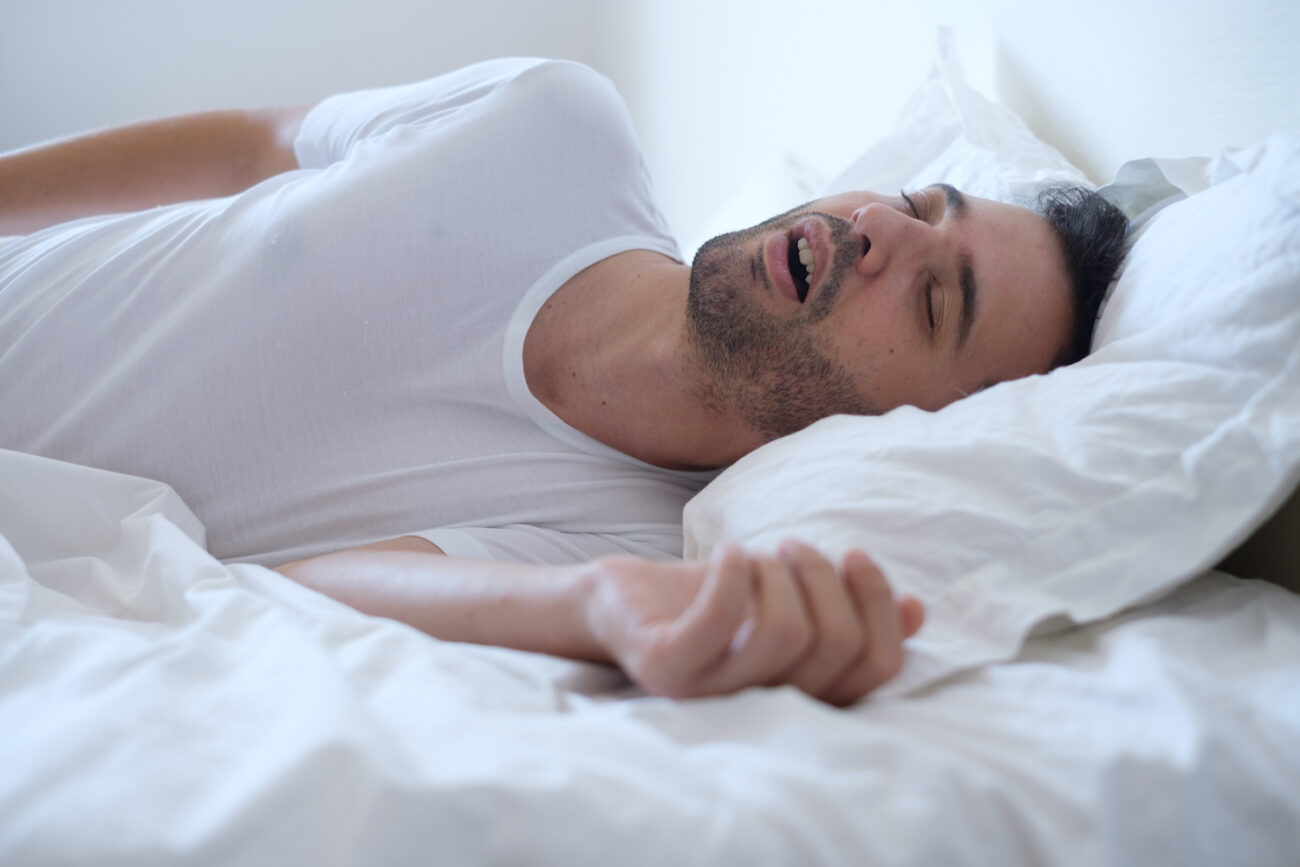Sleep is important to our overall health and well-being. A lack of sleep can cause low energy levels, irritability, and a weakened immune system. However, certain sleep conditions, such as sleep apnea, can also cause complications for your oral health. Sleep disorders can lead to teeth grinding, dry mouth, and jaw pain or stiffness. Treating sleep apnea could improve not only your nighttime sleep but also your oral hygiene.

What is Sleep Apnea?
Sleep apnea is a common sleep disorder caused by an obstructed airway. When we sleep, our muscles relax. For many people, this can cause the soft tissue of the throat and tongue to block airflow. Common symptoms include snoring, jaw pain, and a lack of energy. While a lack of sleep can affect your overall health, sleep apnea can often lead to specific oral health conditions and risks.
Increased Plaque Buildup
One of the more common symptoms of sleep disorders is dry mouth. Many people sleep with their mouths open in an attempt to get more airflow. But having your mouth open all night can often dry it out. Saliva is a crucial part of your oral hygiene. It helps wash away food particles and other bacteria. Chronic dry mouth caused by sleep apnea can make it easier for plaque to develop in your mouth during the night. Even if you brush in the morning, you’re likely still at a higher risk of developing cavities or gum disease.
Tooth Grinding
On the other hand, some people subconsciously clench their teeth and mouth closed while sleeping in an attempt to tighten their muscles and keep their airways clean. This, however, can lead to tooth grinding. Grinding can cause serious dental problems if not treated as soon as possible. Constant wear and tear often damage your tooth enamel, increasing your risk of developing decay or suffering a fracture.
Jaw Disorders
Tooth grinding also puts a heavy strain on your jaw. When you clench your teeth during the night, the temporomandibular joint (TMJ) can quickly become inflamed or damaged. This leads to jaw pain and stiffness that can make it difficult to speak, chew, and clean your teeth properly. Addressing sleep apnea could help reduce these symptoms and encourage healing in your jaw.
How to Maintain Oral Health With Sleep Apnea
Sleep disorders can make it difficult to maintain your oral health and hygiene. Treatment options, such as oral appliances, could help treat sleep apnea and reduce symptoms. But you still need to pay extra attention to your oral hygiene routine. It’s always best to brush and floss your teeth in the morning to help reduce plaque buildup from the night before. Adding an antibacterial mouthwash can also help. It’s also crucial to maintain proper hygiene throughout the day. Sleeping with your mouth open can lead to a dry mouth, but dehydration can often exacerbate the situation.
Treat Your Sleep Apnea Today
If you suffer from sleep apnea, you aren’t alone. Many people suffer from sleep disorders, often without even being aware of it. If you wake up feeling groggy, have low energy levels during the day, and have trouble keeping up with your oral hygiene, sleep apnea could be the culprit. Call Henrich Dental today at (918) 553-5907 to schedule a consultation and learn more about your treatment options.
